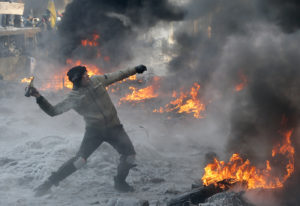 I.
I.
In 2007, M John Harrison, a genre author of some renown, posted an essay on what he saw as the scourge of worldbuilding in genre fiction. It was Harrison’s contention that genre creators were so enamored with “worldbuilding” that it was crowding out important things like character, plot structure, and what we now call “rule of cool.” Importantly, writers were cramming irrelevant worldbuilding details into their works simply to demonstrate they’d thought of them, rather than focussing on characters and story.
In addition, he decried the rise of a certain type of fanboy that searched for every inconsistency and failure of realism in a fictional world, to crow about how they’d found a plot hole. You know, the CinemaSins types. Those who tear down works over trivialities and dismiss the emotional journey.
These were good points, and worth articulating in the climate of the day. Unfortunately, he coined this the “Great Clomping Foot of Nerdism,” presumably because he’d grown to despise his audience and wanted us all to know of his contempt. Even more unfortunately, people took his good points regarding extremism in setting-over-story and over-applied them so broadly that now we have the opposite problem — realistic portrayals of anything are scorned and everything is chaos.
Enter: Late-Season Game of Thrones, and Picard.
II.
In one of my more popular posts I point out that the great thing about Game of Thrones is that it took the Standard Fantasy Honorable Paladin, removed him from a spurious world that rewarded him simply out of narrative fiat, and placed him into a real, breathing world with other real people to explore how the story changes when the author isn’t covering him with Plot Armor. The result was complex, rich stories that people ate up.
When the show runners ran out of source material they fell back to “creating cool scenes,” such as Jamie’s infamous charge at Daenerys’s dragon. It was the fallout from that scene that told the audience “There is no more story here. No characters. Just a series of scenes we think look cool that are strung together chronologically. Don’t expect any consequences to anything. Don’t expect people to make sense.”
This is death for a long-running narrative. Cool scenes are perfect for shorts, and for music videos. They can be heart-wrenching or life-affirming, when taken on their own. But when Inigo Montoya finally tracks down the Six-Fingered Man, we expect him to try to kill him. For him to forget that the Six-Fingered Man was right in front of him, and wander away to some other part of the castle, is inexcusable. Those aren’t the actions of a human, those are the actions of an automata acting on the whims of an author that wants to prolong this revenge narrative.
Game of Thrones was a tragic example, because it started off well-written by someone who cared about the world and the people within it. Picard never had that problem, it didn’t give two damns about anyone within it making sense from the very first scene. It was a naked cash grab. Picard had a singular purpose – create individual scenes that pop. Any scene, taken in isolation, is generally pretty good. The dialog is well written and well acted. Exchanges of emotions would be compelling, if they were taken as vignettes without any greater context. Action scenes would be visually interesting and seem to matter.
The problem comes when you place these scenes in a chronological order and try to imply that they are related to each other. There is no conceivable world where the actions we see on screen are those that real humans would take. No government would ban taking box cutters onto planes and not ALSO look into who was behind the 9/11 attacks. No person would see a loved one stabbed through the chest and not call for medical help. The actions taken cannot be attributed to humans. They are taken purely for the benefit of the camera, to create a scene for an audience that does not exist within the world.
III.
Powerful scenes emerge naturally from good story-telling. They are rare, the culmination of a lot of work during the telling of a story. Scene-chasers don’t want to do that work, and they don’t care about the story. They simply want the accolades of a moving or exciting scene. An impatient writer that just wants to jump from powerful scene to powerful scene without first building the people, the story, and the world in which this can actually happen isn’t just lazy. He’s the equivalent of the over-eager virgin stripping his date’s pants off before taking the time to flirt, tease, kiss, and caress. It will be terrible for everyone involved.
Perhaps this is a problem of perverse incentives. Afterall, it is the scene where Hodor holds the door that we all remember and talk about, and not the seasons of build-up that made it meaningful. It is the 72-second Action Scene clip that gets posted on YouTube that draws attention. It is the tearful confession that’s shown just before the Oscar winner is announced. Everyone wants to write a good scene.
But those pressures have always existed. So perhaps it’s that now too many people hold disdain for the work of building up a coherent world to set a scene within. Of creating and fleshing out the real people to populate a scene with. Now this work isn’t part of the work of the creative person, it is imposing a Great Clomping Foot of Nerdism, which true artists shouldn’t sully themselves with. It’s the nerds who care about what happened to the hero when he’s unhorsed mid-battle and the camera faded to black, only for him to wake up, alone, in complete safety. It’s the nerds who care about knowing why transporters work to get kidnappers into someone’s apartment but not out again. It’s the nerds who care about someone betraying everything they and their ancestors have worked for (in service of preventing humanoid extinction!), simply because it’s convenient for the protagonist.
A character in these situations is not in a living world full of real people. There are no human interactions to explore here, because there are no other humans. There are no consequences of choices to explore, because there are no consequences. These are sterile sets that exist only to provide spectacle for a camera. There are no people here. The writer has created a dead world.
IV.
 “Who cares?” I am sometimes asked. “Can’t you just watch the show and enjoy it?”
“Who cares?” I am sometimes asked. “Can’t you just watch the show and enjoy it?”
It depends on what you want. Hell, on the far side of things, slapstick cartoons don’t even need object permanence as long as they are entertaining. But if I’m not in the mood for a cartoon? Can’t people inhabit a world designed to maximize on-screen drama?
One of the common effects of schizophrenia is feelings of immense importance placed on common experiences. The schizophrenic feels as if they are constantly within a defining moment of history, as if there is some supernatural focus on them specifically, and struggles to explain why this is happening. Common answers are attention from God, or aliens, or the CIA/FBI/Illuminati.
The fact that the world is engineered for an audience is in itself deranging. The Truman Show is about a real person trapped in a dead world — a world designed to bring emotional scenes before a camera. Redshirts is about a character trapped in a dead world — a world that literally pauses when commercial breaks occur, so interesting scenes aren’t missed. Rick in Rick and Morty appears to know he’s playing for an audience.
A world where nonsensical things happen for the purpose of entertaining an outside observer is distinctly different from one where a normal narrative can happen. In all the above cases, the fact that the protagonist is in a dead world where nothing matters is what the story becomes about. All of these works are varying levels of surreal, and all of them are ultimately existential in nature. The struggle to find meaning and purpose within the meaningless existence of a dead world becomes the narrative.
If the story doesn’t become about the unbelievability of the world, then not even the protagonist is a relatable human being. The story degenerates into a series of images that have nothing to do with our common understanding of what it is to be human. There are no characters on screen, there are only puppets that pantomime human actions. There is no life anywhere, merely corpses animated by a deranged lich king who giggles as they emote strongly at one another, tears summoned to their eyes for aesthetic effect, words summoned to their lips that signify nothing deeper within. The writer has created not life, but a mockery of it.
You cannot have characters without a world for them to inhabit. You cannot have meaningful actions that are only there for spectacle. For a story to matter it must have some depth the audience will never directly see that it’s built upon. It must have a world that has been created with at least some care for those that will live within it. Worldbuilding is what prevents dead worlds.








